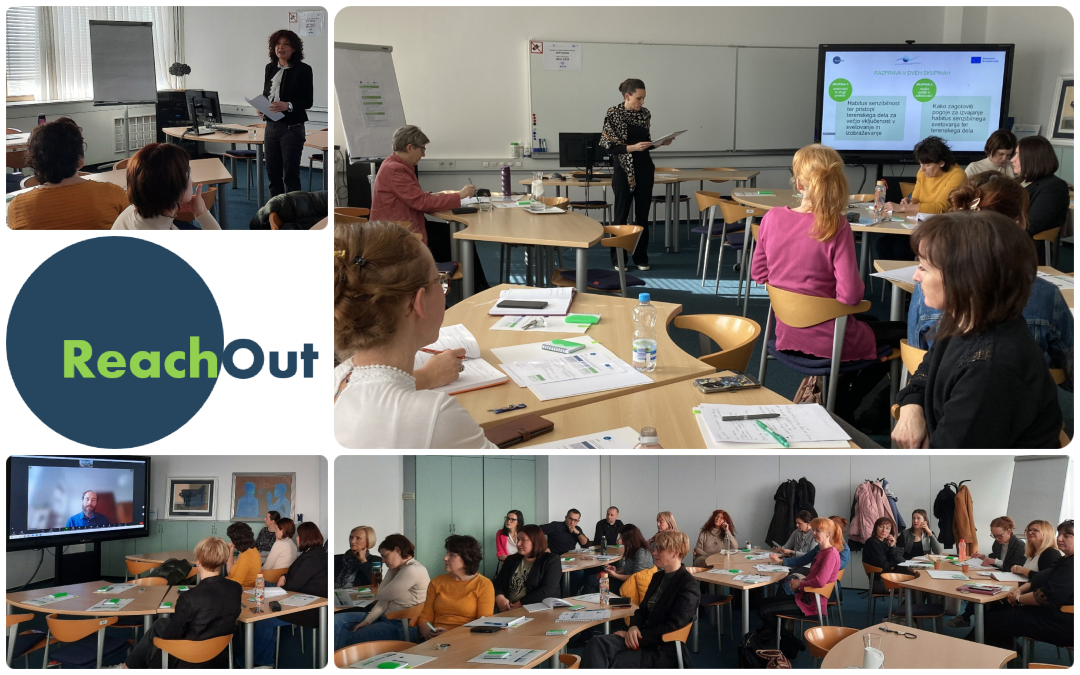In February, the concluding event of Habitus Sensitive Guidance and Outreach marked the end of the two-year Erasmus+ ReachOut international project with the full title Reach Out to the ‘Left-Behind’ – Improving Guidance for Working Persons from the Underprivileged Milieu.
In the project, partners from Austria, Germany, the Czech Republic and Slovenia focused on the needs of working individuals with less stable forms of employment (e.g., fragmented, precarious, low-paid, marginalised, partly declared) who have limited access to education and educational guidance. We explored how effective outreach, guidance, and motivational approaches could increase interest and participation in adult education and how to support the counsellor’s sensitivity to the habitus of working people from underprivileged milieus.
The project’s results were summarised in three documents (in Slovenian): the National Reports, the Self-Study Manual and the Recommendations for Policymakers.
In the national reports, we described and analysed the systems used in the countries involved in the project to provide professional educational guidance to working people from underprivileged milieus, as well as the state of policy and practice in this area. We also presented some examples of good practice.
The Self-Study Manual is aimed at counsellors and others who work with groups of working people from underprivileged milieus and are professionally involved with various aspects of guidance and outreach, including the development of guidance and the provision of conditions for its operation. Based on the experiences of counsellors and experts from all four partner countries, we included guidelines and professional directions for implementing habitus-sensitive guidance.
The third document, Recommendations for Policymakers, is a strategic document with recommendations for improving the engagement of working people from underprivileged milieus. It is intended for policymakers at the national level in the project partner countries and was developed based on the experiences and reflections of all project partners.
In preparing the documents, we followed the critical aspects of the project, which are:
- guidance in ALE to increase participation in lifelong learning,
- increased access to guidance and education through outreach and habitus-sensitive guidance,
- focusing on the target group of working people from underprivileged milieus.
The project has brought together all four partners. We established contact with numerous experts, counsellors and other practitioners who participated in interviews and helped us identify examples of good practice (in Slovenia, we conducted 17 such interviews). Therefore, the project’s results are a product of joint efforts and are based on many diverse experiences. We are confident that they will be helpful both in the national contexts of the partner countries and, more broadly, across Europe.
Urška Pavlič (urska.pavlic@acs.si), SIAE




